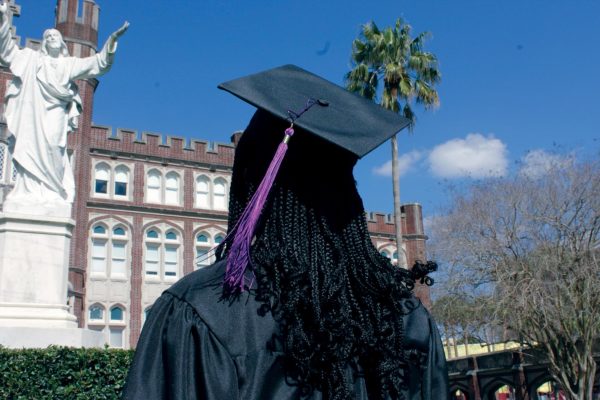Editorial: Freedom of thought without fear
August 20, 2015
College is a time where students should be free to explore different ideas, and their ability to do that is severely limited when students and faculty fear hostility or retribution.
Trending across the United States is the view that censorship and ostracism are appropriate responses to controversial speech or expression. While not unique to Loyola, it’s a tendency among students, faculty, and administrators to make pariahs out of people with alternative views.
This is a situation that cannot be tolerated in any university that pursues “truth, wisdom, and virtue,” as Loyola claims it does.
This tendency is not informed by one ideology. Be it from social justice advocates on the left, attempting to make Loyola a more sensitive community, to Catholic traditionalists on the right, attempting to preserve the doctrines of the Church, this inclination is shared by many.
While shared by many, it should be rejected by all. An institution of higher learning acts as a “marketplace of ideas,” in which ideologies, faiths, and worldviews compete for the hearts and minds of students. When this marketplace is controlled through censorship or ostracism, free thinking suffers.
The identity of a college should not determine the conversation on campus.
Since Loyola is a private, Jesuit university, respect should be given to the teachings of the Catholic Church. Respect is not the same as absolute deference, and no conversation that calls Church teachings into question should be discouraged.
In the same way, the Jesuit tradition is one of social justice. However, students and faculty should be free to criticize this tradition without fear of condemnation or censureship. This freedom is anathema to some.
Recently, The Princeton Review named Loyola University New Orleans as the second best college for race and class interaction in the country. This did not happen because of intrusive speech codes or internal thought police.
Loyola was acknowledged for its diversity because it offers a safe environment for self-expression. Racism and classism were at one point a product in the marketplace of ideas. By asking questions and challenging orthodoxies in a free and uncontrolled way, they have been rendered intellectually (but not structurally) obsolete.
A university that values preserving feelings and dogma over pushing the frontiers of thought will find itself intellectually stagnate. This is something that the Loyola community should be careful to avoid.
In such an intellectually diverse time in history, Loyola can ill-afford to be perceived as intolerant of dissent. Such a perception would hamper the university’s ability to attract talented students who could change the world for the better.
Whenever a university draws a distinction between high speech worthy of being privileged, and low speech worthy of censorship or ostracism, the result is homogenous thought among the student body.
According to the U.S. Bureau of Labor Statistics, about 70 percent of high school graduates enrolled in a college or university in 2014. With such a large number of people getting a higher education around the country, it would be a mistake to train them to be afraid of speaking freely.
While free speech on campus is of the highest importance, so is having a discourse that is productive.
Part of having a constructive debate is making real attempts to understand the opposing arguments. Basing dialogue on out-of-context comments or straw men is not an ethical debate tactic. Dismissing an argument based off the assumption that it lacks depth is disrespectful.
Loyola is not just an institution; it is a community. If members of our community attempt to undermine each other, we will not thrive and grow. Organizational blacklists, public condemnations, and subtle insults in the classroom have no place in our university.
Students should constantly agitate for an environment that allows ample opportunity for free expression, regardless of personal ideologies, faiths or worldviews. Whenever students feel unable to express themselves, the greater mission of the university is lost.
If university faculty and administrators want to create a culture where students are unafraid of expressing their thoughts and testing their ideas, they should be the most vocal advocates of the uncontrolled freedoms of speech and expression – not the students.
Loyola students, faculty and administration have to commit to providing a campus where the freedom of thought is respected.
The editorial represents the majority opinions of The Maroon’s editorial board and do not necessarily reflect the opinions of Loyola University.














